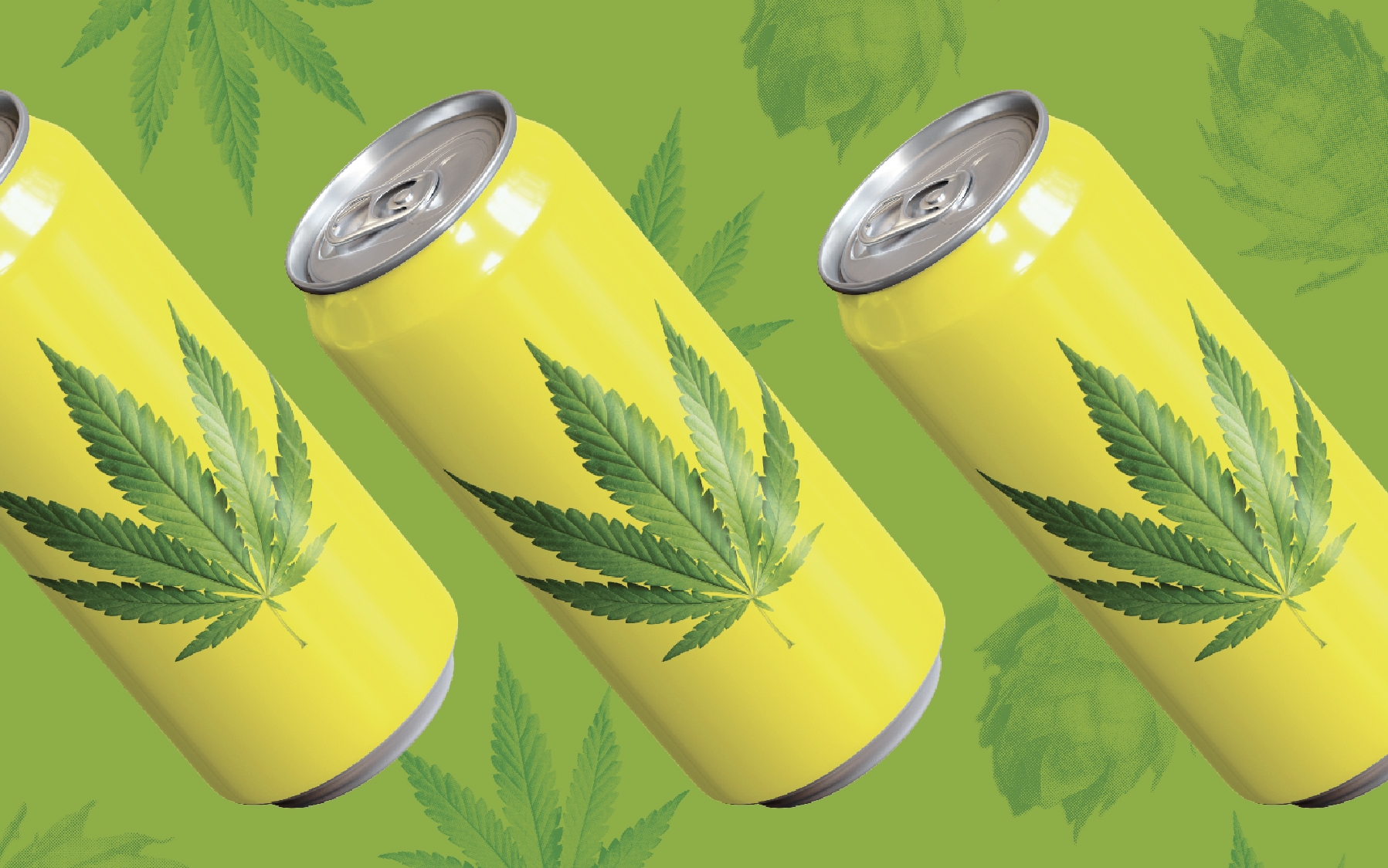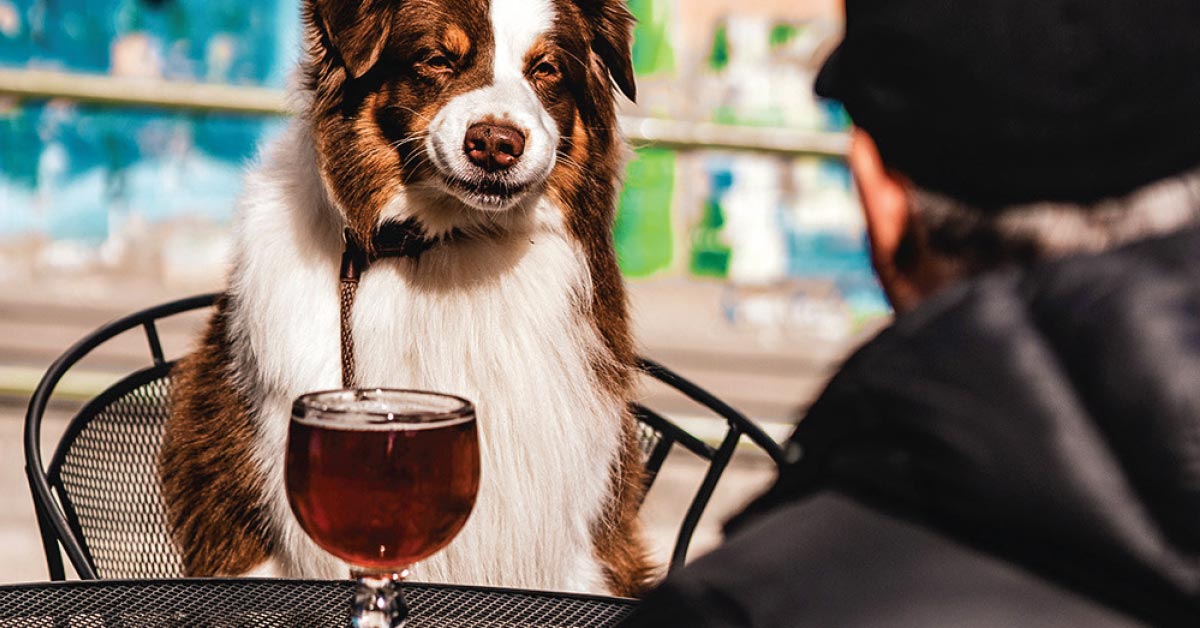From local craft breweries rolling out small batches of cannabis-themed beer to some of the world’s largest macrobreweries infusing beverages and investing billions in growers, a marriage is unfolding between cannabis and suds at an international scale.
Since Michigan voters legalized recreational marijuana last year, some of the state’s most well-known breweries are joining the action with products merging beer and marijuana interests. Within the past month, a California manufacturer of nonalcoholic, cannabis-infused beer acquired a Detroit-area brewery, citing Michigan as a source of market potential.
However, several legal and economic questions remain as this marriage evolves. Market analysts have yet to determine whether these products will unfold as a full-blown trend as companies attempt to stay within state and federal law.
“Hemp-derived, CBD (cannabidiol) and cannabis-infused products are definitely what’s next of next,” said Julia Herz, craft beer program director for the Boulder, Colorado-based Brewers Association. “It’s early times in the discussion — it’s exciting to see where things will go.”
Independent craft breweries in particular are showing interest in cannabis-related products, which Herz called “encouraging” since craft beer sales by volume increased 4 percent in 2018 compared to overall industry declines.
Since advocates began pushing statewide marijuana reforms in Michigan more than two years ago, some breweries have watched with keen interest, experimenting with beers that mimic the smell and taste of marijuana or infusing beer with CBD and hemp.
This includes some of the state’s most well-known companies. In March, Founders Brewing Co. piloted a CBD-infused beer, though nothing has hit the market yet.
“We’ve done some baseline work and are prepared to continue trials as soon as the legal nature of these types of beverages are clarified,” said Alec Mull, Founders’ vice president of brewery operations. “Our team is eager to elevate our focus on this type of innovative beer, but have our hands tied in the meantime. To be clear, our intentions are to experiment with hemp holistically, not just on CBD alone. CBD is indeed a very important cannabinoid, but is merely one of many that we would try to incorporate with the flavor and aroma characteristics of interesting hemp cultivars.”
In August, Short’s Brewing Co. announced a partnership with Green Peak innovations, one of the largest medical marijuana growers, processors and retailers in the state. Green Peak will make marijuana edibles that mimic the flavor of Short’s beers.
Short’s President Joe Short has reportedly said, “THC and cannabis products have been part of our innovation development discussions for years.”
The Short’s partnership illustrates at least one product potential for brewers: nonalcoholic beverages (including beer) that are infused with THC, the primary compound of marijuana with psychoactive properties giving users the “high.”
That’s the plan behind San Diego-based Two Roots’ recent acquisition of Rochester Mills Beer Co. in Auburn Hills. Two Roots will use the production facility to make a nonalcoholic beer that is then sent to state-licensed marijuana processors to be sold at licensed dispensaries.
Josh Hovey, spokesperson for the Michigan Cannabis Industry Association, called the emerging trend a “natural partnership” that could benefit both industries.
“There are very similar target demographics for some of the products,” Hovey said. “I think these types of partnerships are only going to become more common as the industry evolves.”
Regulatory uncertainty
While excitement is growing within the beer and cannabis industries, regulatory uncertainty is leaving most companies with more questions than answers.
“We’re entering another layer of both state and federal regulation that’s not really well or clearly understood yet,” said Scott Graham, executive director of the Michigan Brewers Guild.
Ben Wrigley, an attorney at Cannalex Law in Grand Rapids, said uncertainty remains in Michigan over combining THC with alcoholic beverages, for example, even though the state has a law prohibiting such products. Licensed marijuana processors could challenge the law based on language in the Michigan Regulation and Taxation of Marihuana Act that doesn’t address infusing marijuana with alcohol.
“Will there be litigation? Probably,” Wrigley said. Adding CBD to beverages brings oversight by the federal Food and Drug Administration.
“(Government officials) and the industry are learning,” he said. “everyone is kind of working together as best they can to move this forward.”
According to the Brewers Association, marijuana legalization doesn’t appear to be having much of an effect on beer sales. In the nine states (and Washington, D.C.) where recreational cannabis is legal, overall beer sales are down 1.1 percent this year. In medical marijuana states, sales are down 1.8 percent. Meanwhile, in states where cannabis is still illegal, sales are down 2.3 percent.
Some have suggested that entering the cannabis market is a way to bolster declining beer sales, particularly for large macrobreweries that have announced multibillion-dollar investments in cannabis companies. Last year, Molson Coors Canada launched a joint venture with a Canadian cannabis producer to make nonalcoholic, marijuana-infused beverages, seeing a potential multibillion-dollar market in our neighborhood to the north. In 2017, Constellation Brands — which makes Corona and Modelo — invested $4 billion in a Canadian marijuana company.
Kris Spaulding, co-owner of Brewery Vivant in Grand Rapids, said overall beer sales declining may be motivating some companies to enter the cannabis space. She compared it to some breweries’ experimentation with hard seltzers.
“I see our industry experiencing a little more strife than it has the last bunch of years. There are interesting ways to expand business when the industry itself isn’t in a growth phase,” said Spaulding, who added that Brewery Vivant is not interested in pursuing cannabis-related products.
In a survey last year of more than 5,000 member breweries, Herz noted nearly half said they would “entertain making beers with THC or CBD should the regulatory environment change.”
Still, brewers face hurdles in getting approval from the federal Alcohol and Tobacco Tax and Trade Bureau for cannabis-related products. Few breweries across the U.S. have been approved for CBD-infused or hemp-derived beers. However, the Agriculture Improvement Act of 2018 — commonly known as the federal Farm Bill — removed hemp as a Schedule 1 drug, opening the potential for more hemp-derived products.
“I do think the Farm Bill update did make things in the space of more interest for craft brewers,” Herz said. “It’s why there is more discussion and play in this space.”





